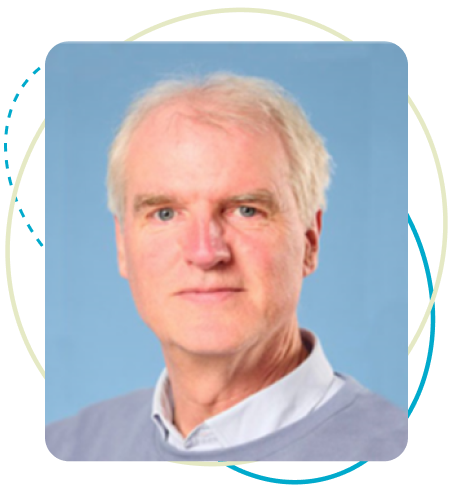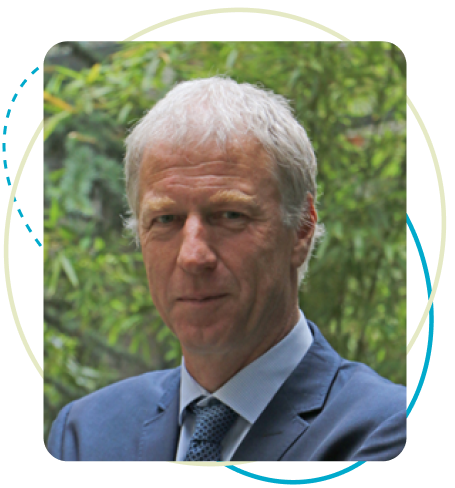Speakers

Keynote
Nebojsa Nakicenovic
“From Holocene to Humanity’s Future on a Just and Sustainable Planet”
In this keynote, Nebojsa Nakicenovic explores the trade-offs and systemic transformations needed to address today’s interconnected global challenges—climate change, inequality, and unsustainable development.
Drawing on decades of research in energy, mobility, digitalization, and urban systems, he highlights the paradoxes of progress that have emerged during the Great Acceleration, including deepening inequality and environmental degradation. His talk will examine long-term patterns of change, with a particular focus on the social dimensions of innovation and diffusion. Nakicenovic will reflect on how transformative innovation—guided by inclusive policies and international cooperation—can help chart a path toward a more resilient, just, and beautiful future.
Nakicenovic is a globally recognized expert in energy economics and systems analysis. He is outgoing Deputy Chair of the European Commission’s Group of Chief Scientific Advisors and Executive Director of The World in 2050 initiative. Formerly Deputy Director General of the International Institute for Applied Systems Analysis (IIASA) and Professor at Vienna University of Technology, he holds degrees from Princeton and the University of Vienna, and has authored over 850 publications with more than 66,000 citations. His contributions to global assessments such as the IPCC and Millennium Ecosystem Assessment (MEA) have earned him honors including the Austrian Grand Decoration in Silver for Science and Art, the 2007 Nobel Peace Prize (shared with the IPCC), and the 2005 Sheikh Zayed Environmental Award (shared with the MEA) under the leadership of Kofi Annan, UN Secretary-General.
He has served in numerous high-level advisory roles, including as Director of the Global Energy Assessment (GEA), Convening Lead Author of the UNEP Gap Report and IPCC reports, advisor to the UN Secretary-General on energy, climate, and innovation, and on the 10-Member Group on Science, Technology and Innovation. He is a member of multiple scientific boards and institutions, including the Academia Europeae, the World Academy of Art and Science, the Luohan Academy, the Montenegrin Academy of Sciences and Arts, the Potsdam Institute for Climate Impact Research, the Advisory Council of the German Government on Global Change(WBGU), and serves on the editorial boards of eight scientific journals.
Welcome Day
TALK 1
Jochen Markard
“Sustainability Transitions – Introduction and Personal reflections”
Jochen Markard is a Privatdozent at ETH Zurich and a senior researcher at the Zurich University of Applied Sciences (ZHAW). With a PhD in innovation studies and academic training in electrical engineering and energy economics, his research centers on sustainability transitions—examining large-scale changes in sectors such as energy and transport toward more sustainable production and consumption.

Markard’s interdisciplinary approach combines insights from innovation and transition studies, political science, and management. His current work addresses net-zero targets, transitions in hard-to-decarbonize industries, and the politics of sustainability. He has published extensively in leading journals including Science, Nature Energy, PNAS, Research Policy, EIST, and Energy Policy.

TALK 2
Ron Boschma
“An evolutionary perspective on regional traps: some evidence from European regions”
Ron Boschma is a Full Professor at Utrecht University and holds a Chair in Innovation Studies at the University of Stavanger. He is widely recognized for his pioneering work in Evolutionary Economic Geography, with influential contributions on the spatial evolution of industries, regional innovation systems, network dynamics, agglomeration externalities, and regional economic growth.
Boschma serves as Associate Editor of Regional Studies and sits on the Editorial Boards of Economic Geography and Review of Regional Research. In 2024, he was awarded the prestigious Vautrin Lud Prize (Prix International de Géographie Vautrin Lud), the highest honor in the field of geography.
Panelists in Plenary Debate
Frank Geels
Frank Geels is a professor of system innovation and sustainability at the University of Manchester. Geels is a proeminent scholar on sustainability transitions in energy, mobility, buildings, and agri-food systems. He is well known for his work on the Multi-Level Perspective, which conceptualises the main processes of change using insights from evolutionary economics, innovation studies, institutional theory, and political science.

He published 6 books and 83 peer-reviewed articles, including in Science, Nature Climate Change, and Global Environmental Change, and was selected in the Highly Cited Researchers list (2014, 2019, 2020). Geels is a lead author of the Working Group III contribution to the 2021 Intergovernmental Panel on Climate Change report, a member of the Scientific Committee of the European Environment Agency, and a member of the World Economic Forum’s Global Future Council on the New Agenda for Economic Growth and Recovery.

Ana Fontoura Gouveia
Ana Fontoura Gouveia is Head of Sustainability at Banco de Portugal and an Invited Assistant Professor at Nova School of Business and Economics. Gouveia has held several high-level public roles, including Secretary of State for Energy and Climate (2023–2024) and Chief Economist to the Portuguese Prime Minister (2019–2022), where she played a key role in shaping Portugal’s Recovery and Resilience Plan. Her work focuses on public policy, political economy, and the integration of climate risk into financial and monetary systems.
Gouveia holds a PhD in Economics from Nova SBE and has been affiliated with institutions such as the European Central Bank and the Toulouse School of Economics.
Diana Ürge-Vorsatz
Diana Ürge-Vorsatz is Vice-Chair of the Intergovernmental Panel on Climate Change (IPCC), elected in July 2023, and previously served as Vice-Chair of IPCC Working Group III during the Sixth Assessment Cycle. She is a Professor of Environmental Sciences and Policy at Central European University, holding a PhD from the University of California (UCLA/Berkeley). A Coordinating Lead Author for AR4 and AR5, she has also contributed to the Global Energy Assessment and served on the UN Scientific Expert Group on Climate Change.

Diana’s research focuses on climate-change mitigation, especially energy efficiency in buildings — a topic she explored in her role as review editor for Chapter 5 of the IPCC’s SR1.5 report. She sits on the editorial boards of Energy Efficiency and Annual Reviews of Environment and Resources, and has been appointed to numerous high-level scientific panels. She has received several national and international prizes and is member of Academia Europea since 2017.
Panelists in the Plenary Session on Transition Policy and Role of Transition Research

CHAIR
Florian Kern
Florian Kern, head of research group ‘ecological economics and environmental policy’, Institute for Ecological Economy Research and STRN chair. Florian is head of the research group ‘Ecological Economics and Environmental Policy’, and theme coordinator ‘innovation and technology’ and ‘policy and governance’ at the Institute for Ecological Economy Research (IÖW), based in Berlin, Germany. In 2024 he was elected to serve as the Chair of the Sustainability Transitions Research Network (STRN). His research focuses on the policies for and the politics of sustainability transitions.
Myriam Bovéda
Myriam Bovéda, Team Leader for Sustainable Growth at the European Commission’s Directorate-General for Regional and Urban Policy. Myriam works with other Commission services to integrate the European Green Deal objectives into cohesion policy investments across the EU. Myriam holds a Master degree in European law (Toulouse and London) and has 25-year experience of working on cohesion policy and sustainable growth both in the private and public sectors at European and local levels. (tbc)


Hans Bruyninckx
Hans Bruyninckx, former executive director of the European Environment Agency (EEA), Professor of Environmental Governance at University of Antwerp and Member of the International Resource Panel, UNEP. Hans was the Executive Director of the European Environment Agency between 2013 and 2023. At the EEA he played a pivotal role in integrating environmental and climate knowledge within a broader social and economic context and successfully transformed the EEA’s extensive knowledge base into a more policy-oriented format.
Jennifer Hiscock
Jennifer Hiscock, Director of Electricity, Transportation & Buildings Innovation for Natural Resources Canada’s Office of Energy R&D. Jenifer manages R&D and Demonstration Programs, funding innovation projects across Canada, and champions the Innovation & Electricity Regulation Initiative in Canada.


Mapula Tshangela
Mapula Tshangela, PhD embedded researcher at the Centre for Sustainability Transitions, Stellenbosch University, South Africa with policy experience as the Director Climate Change Mitigation at the National Department of Forestry, Fisheries and the Environment. Mapula is an embedded researcher-bureaucrat, focusing on sustainability transitions policy and politics with the Stellenbosch University’s Centre for Sustainability Transitions.
Her research draws on her experience as the Director Climate Change Mitigation Plans Implementation, as a senior government official for 18 years at the national government Department of Forestry, Fisheries and the Environment in portfolios climate change, green economy and sustainable development.

